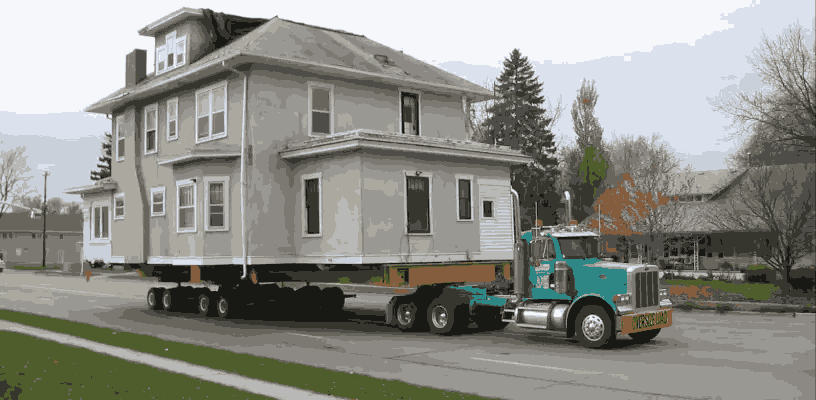Commercial vehicle accidents are a common yet complex reality on today’s roads. From delivery trucks to heavy-duty semis, these vehicles play a vital role in our economy but also pose unique risks to road safety. Understanding the types of commercial vehicles involved, the causes behind such accidents, and the legal nuances is crucial for drivers, businesses, and road users alike. This blog breaks down these complexities to help shed light on how individuals and organizations can work together to prevent accidents and address their aftermath.
Types of Commercial Vehicles Involved in Accidents
Not all commercial vehicles are created equal, and the type of vehicle involved can significantly influence both the nature of the accident and its consequences.
Common Types of Commercial Vehicles
- Delivery Trucks: Often seen on urban roads, these vehicles are responsible for last-mile deliveries.
- 18-Wheelers/Semis: Large trucks used for transporting goods across long distances.
- Buses: Vehicles carrying multiple passengers, including school and public transit buses.
- Postal or Courier Vans: Smaller vehicles primarily used for package delivery.
- Construction/Agricultural Vehicles: Heavy-duty equipment used in construction or farming operations.
Each category comes with unique operational risks. For instance, delivery trucks make frequent stops, posing a danger in high-traffic areas. Meanwhile, 18-wheelers require skillful handling and have significant blind spots.
Accidents by the Numbers
Statistics provide valuable context:
- Semi-trucks account for roughly 11% of all fatal road accidents in the U.S. annually.
- Delivery vans and trucks make up 23% of reported city road collisions, partly due to their high prevalence in urban environments.
- Buses, while safe statistically, are involved in 5% of serious accidents, particularly in densely populated areas.
Understanding the types of vehicles involved helps paint a clearer picture of how and why these accidents occur.
Causes of Commercial Vehicle Accidents
Commercial vehicle accidents are rarely random; they’re often the result of a combination of factors. By understanding the root causes, we can work towards effective prevention.
Common Causes
- Driver Fatigue
Commercial drivers often work long hours to meet tight deadlines, leading to fatigue—a critical factor in reduced reaction times and impaired decision-making.
- Improper Loading
Overloaded or improperly secured cargo can shift mid-journey, throwing off the vehicle’s balance and increasing the likelihood of rollovers or losing control.
- Vehicle Maintenance Issues
Faulty brakes, worn-out tires, and engine problems can turn a routine trip into a dangerous situation. Regular inspections are essential but often overlooked due to time constraints.
External Factors
Not all causes are within the driver’s control. External factors such as poor weather conditions, construction zones, and unexpected road hazards play their part. For example, icy roads can reduce the stopping power of even the most secure commercial rigs, while poorly marked construction detours can easily throw drivers off course.
Legal and Insurance Considerations
When a commercial vehicle accident occurs, the aftermath often involves intricate legal and insurance processes.
Legal Responsibilities
Drivers and employers must adhere to a strict set of laws designed for commercial vehicle operators. Here’s what that entails:
- Drivers’ Obligations
Drivers are required to abide by regulations like mandatory rest periods outlined by the Federal Motor Carrier Safety Administration (FMCSA). These laws are in place to reduce accidents caused by fatigue.
- Employers’ Responsibilities
Companies must ensure vehicles are well-maintained and drivers are properly trained. Failing to do so can result in liability for damages, especially in accidents caused by poorly performing equipment or negligent drivers.
Insurance and Claims Process
Commercial vehicle accidents involve comprehensive insurance coverage:
- Commercial Auto Insurance
Covers damages to both the employer’s fleet and third parties involved in an accident.
- Cargo Insurance
Essential for covering the cost of goods being transported that might be damaged or destroyed.
- Personal Injury Claims
Injured parties often seek compensation for medical bills, lost wages, and emotional distress.
Navigating these issues without legal expertise can be overwhelming. Having a reliable lawyer who specializes in truck accidents, such as those in South Jordan, UT, can streamline the process, ensuring fair compensation and clear resolution. If you’re involved in a car accident in Duluth, seeking assistance from a specialized car accident lawyer can be crucial. For more information, visit https://slamdunkattorney.com/
Safety Tips for Navigating Roads with Commercial Vehicles
Safety plays a pivotal role in reducing the frequency and severity of commercial vehicle accidents. Whether you’re a commercial vehicle operator or another driver sharing the road, following these tips can be lifesaving.
For Commercial Vehicle Operators
- Adhere to Rest Periods
Always prioritize physical and mental well-being over meeting delivery deadlines.
- Conduct Regular Maintenance
Ensure your vehicle is in optimal condition by doing routine checks before trips.
- Stay Vigilant
Constant situational awareness, especially in high-traffic areas or adverse weather conditions, can make a huge difference.
For Other Drivers
- Keep a Safe Following Distance
Large trucks often require more time to brake, so avoid tailgating.
- Be Aware of Blind Spots
Remember that truck drivers have limited visibility. Avoid staying in areas where you can’t see the driver’s mirrors.
- Exercise Patience
It’s tempting to overtake slowly moving trucks, but rushing can increase risk. Wait for safe opportunities to maneuver.
Proactive safety measures benefit everyone on the road, creating an environment where commercial vehicles and private vehicles can coexist harmoniously.
Conclusion
Commercial vehicle accidents are complex events with potentially devastating consequences. By understanding the types of vehicles involved, recognizing common causes, and staying informed about legal and safety considerations, we can reduce their prevalence and severity.
Whether you’re a commercial vehicle operator, a business owner, or a cautious driver, knowledge and proactive measures are your best tools. Creating safer roads for everyone begins with awareness—and a commitment to action.







